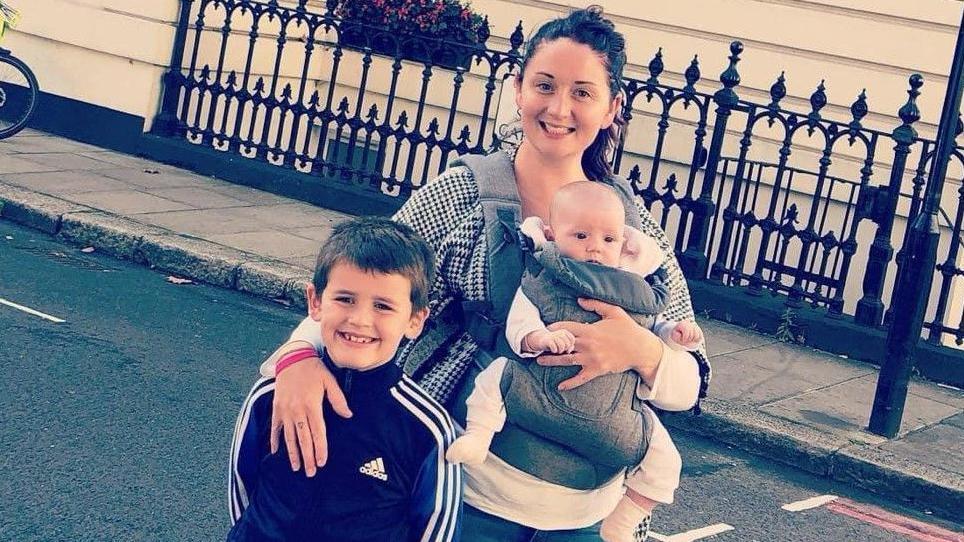Inflation falls to lowest level in almost three years
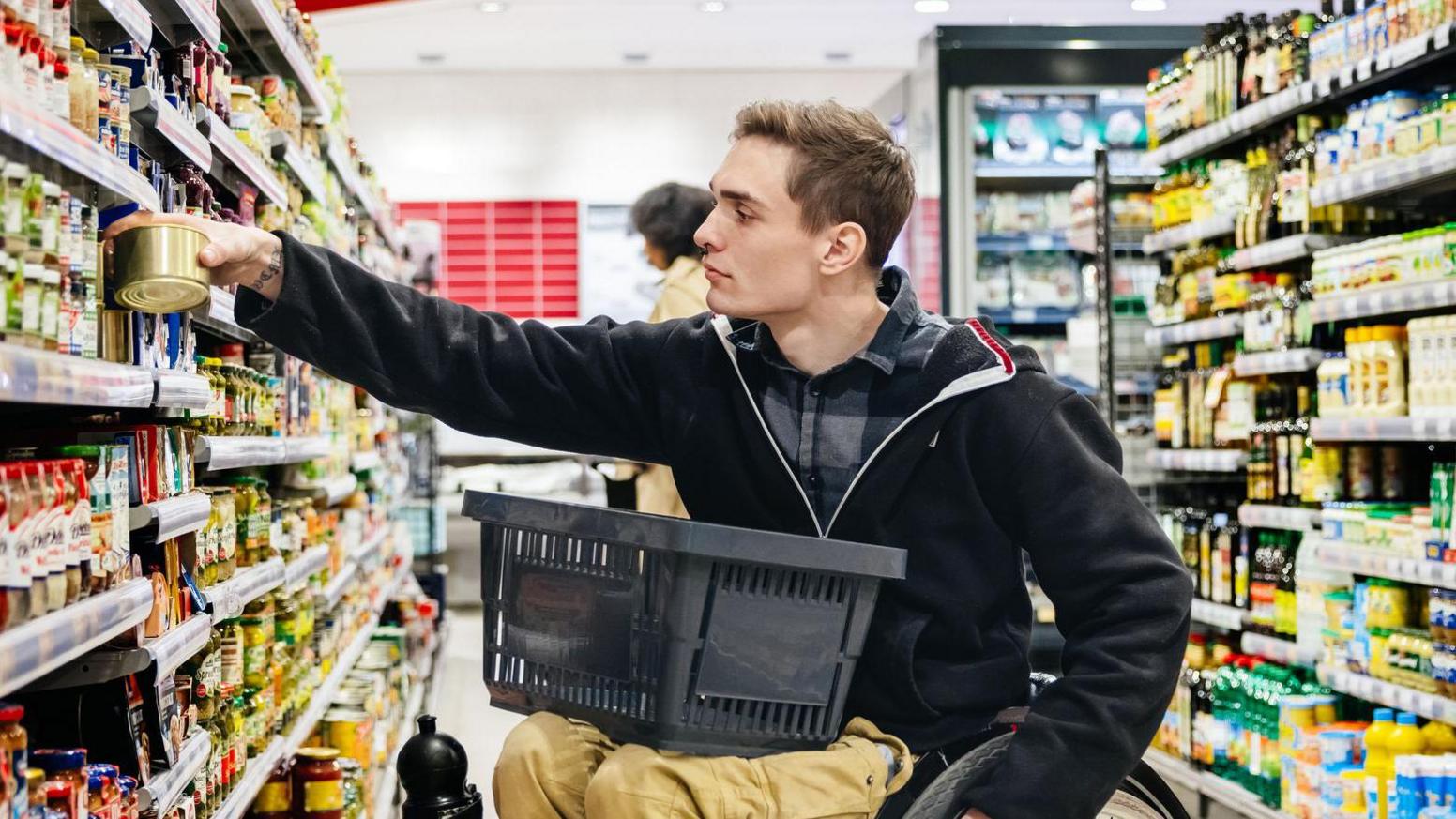
- Published
Inflation has hit the Bank of England's target for the first time in almost three years.
Prices rose at 2% in the year to May, down from 2.3% the month before, official figures show.
The economy is a key talking point in the run-up to the general election on 4 July, with all of the main parties battling over how they would keep the cost of living under control.
The Conservatives said their "difficult decisions" were paying off, but Labour said pressures on family finances were "still acute".
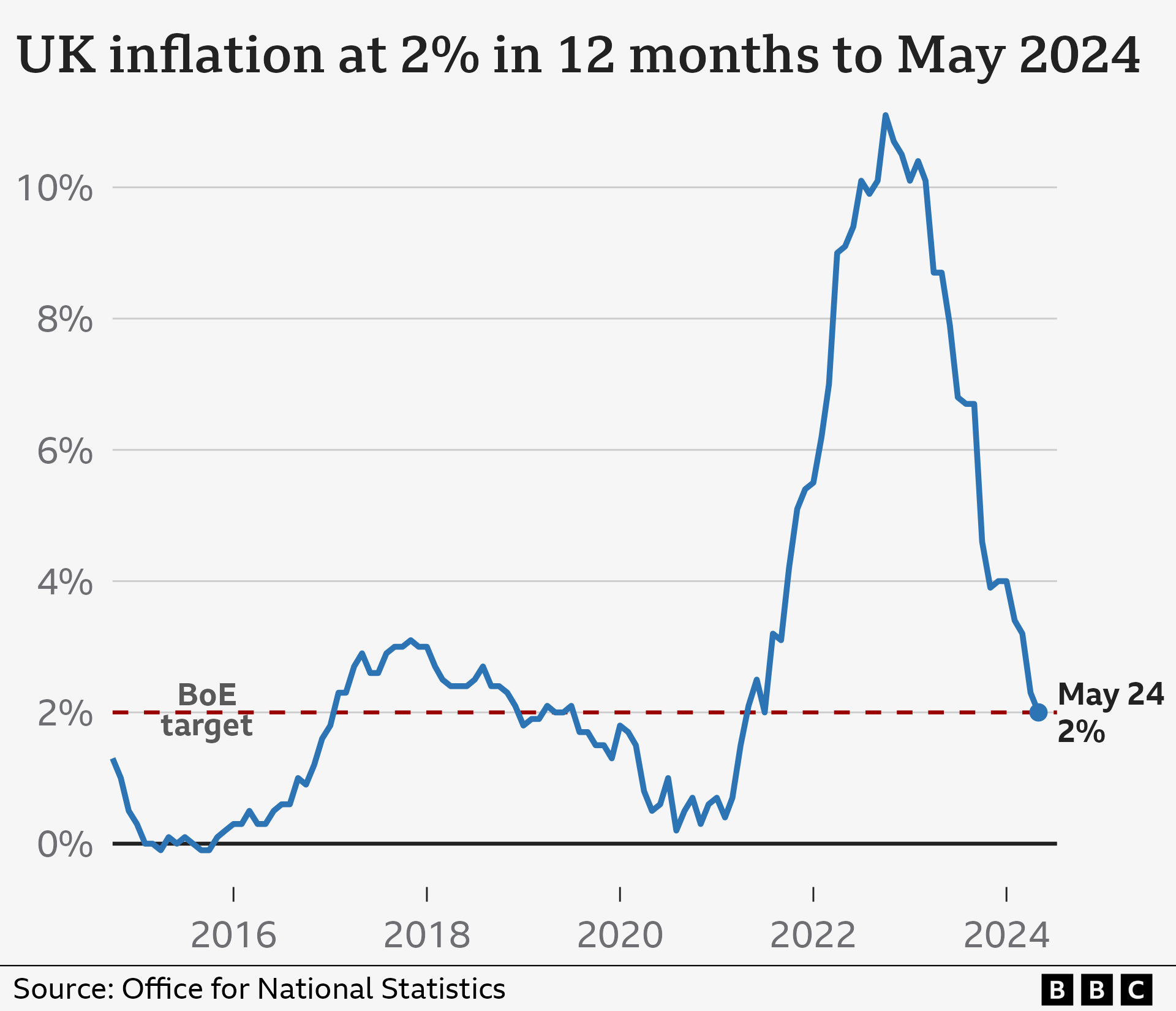
The drop in May's inflation figure was driven by a slight fall in prices for food and soft drinks, and slower price rises for recreation and culture and furniture and household goods.
Prices for bread, cereals, vegetables, sugar, jam and chocolate all fell between April and May this year compared with a year ago.
However, food prices overall are still 25% higher than at the beginning of 2022.
Petrol prices also increased, rising by 0.7p per litre between April and May while diesel prices fell by 0.8p per litre.
The inflation figure comes ahead of the Bank of England's latest decision on UK interest rates this Thursday.
The Bank is expected to hold the rate at 5.25% - a 16-year high - for the seventh meeting in a row.
Markets have now also cut bets that the Bank of England will slash rates at its next opportunity in August. That is because price rises in the services sector remain high at 5.7% in the 12 months to May.
Inflation has fallen steadily since October 2022, when Russia's invasion of Ukraine caused it to peak at 11.1% as food and fuel prices soared.
But millions of households are still struggling with the cost of living.
Even though inflation is falling, it does not mean the prices of goods and services overall are coming down, just that they are rising at a slower pace.
The Bank of England has also put up interest rates to try to dampen down consumer demand, driving up mortgage rates and rents.
Official figures on renting - also released on Wednesday - showed average rents paid to private landlords in the UK rose by 8.7% in the year to June.
Meanwhile, even with the inflation rate falling, mortgage rates remain stubbornly high as lenders wait for the Bank of England’s next and subsequent moves on interest rates.
'You can't pass all costs on to customers'
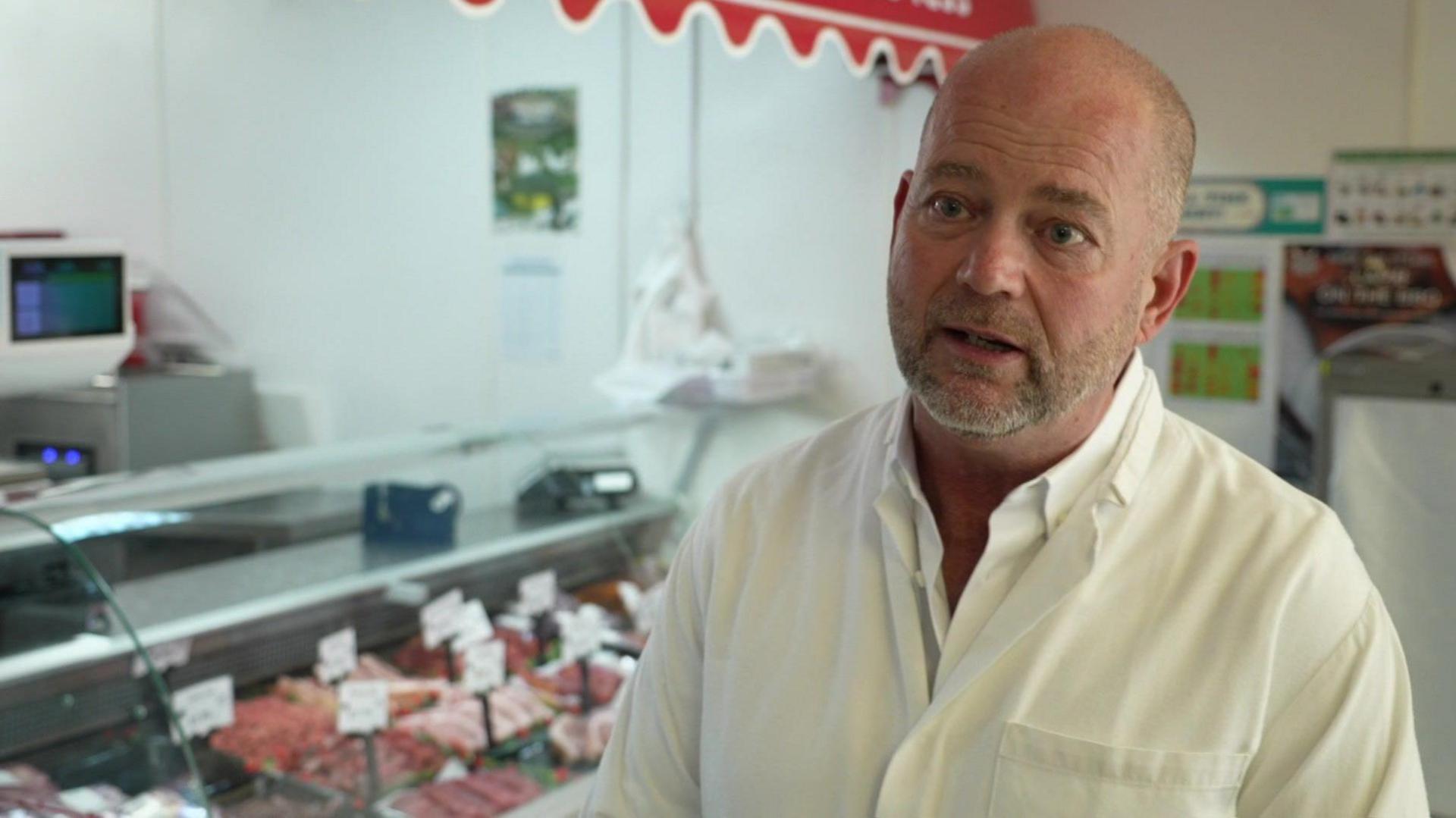
Gary Wildman says his costs have soared
Gary Wildman, the owner of John Wildman & Sons butchers, told the BBC he had seen price rises levelling out at the store he started with his dad 31 years ago in Rustington, West Sussex.
"Prices are probably 10 to 15% more than they were at the beginning of Covid, but they are level now, definitely," he told the BBC.
However, he said some products such as pork were still going up while the shop's energy bills were higher than a few years ago.
"You do take a hit to your margins," he said. "You can't pass all costs on to customers or the customers wouldn't come in."
May's inflation figure is the last big official economic statistic before the general election and has sparked significant debate among the main parties.
The Conservatives claim the figures back up their story of an economic turnaround - although the question for them politically is whether they get any credit for the fall.
Parties battle over cost of living
Chancellor Jeremy Hunt said the UK's inflation rate was now lower than "nearly all" major economies.
"That would not have happened under Labour that refused to condemn the public sector pay strikes, that would have meant inflationary pay rises, inflation lasting longer," he added.
But in a interview with the BBC later on Wednesday, Mr Hunt acknowledged the election campaign was "tough" and became the latest senior Conservative to publicly acknowledge his party could be on course for defeat.
"It's very important if Labour win, that they have an effective opposition in Parliament," he added.
Labour continued to press concerns about the cost of living.
Rachel Reeves, Labour’s shadow chancellor, told the BBC: “Unlike Conservative ministers, I'm not going to tell people that everything's fine.
"I know that the cost of living crisis is still acute, that even though inflation is falling, it doesn't mean the prices are coming down, they're just rising at a less fast rate."
Liberal Democrat Treasury spokeswoman Sarah Olney said millions of people would not be feeling any better off.
"Rishi Sunak's boasts will ring hollow to countless families seeing their mortgages skyrocket and agonising rises in shopping prices compared to just a few years ago."
Attempts by politicians to apportion blame for high inflation, or claim credit for it falling, should be treated with caution.
The soaring cost of living was mainly driven by the Covid pandemic and Russia's war in Ukraine which drove up global commodity prices.
Meanwhile, falling inflation was largely due to declining wholesale energy and food prices, along with 14 rate hikes by the Bank of England.
UK inflation is now rising at its slowest pace since July 2021.
It is also lower than in the eurozone and the US, where rates were 2.6% and 3.3% in May respectively.
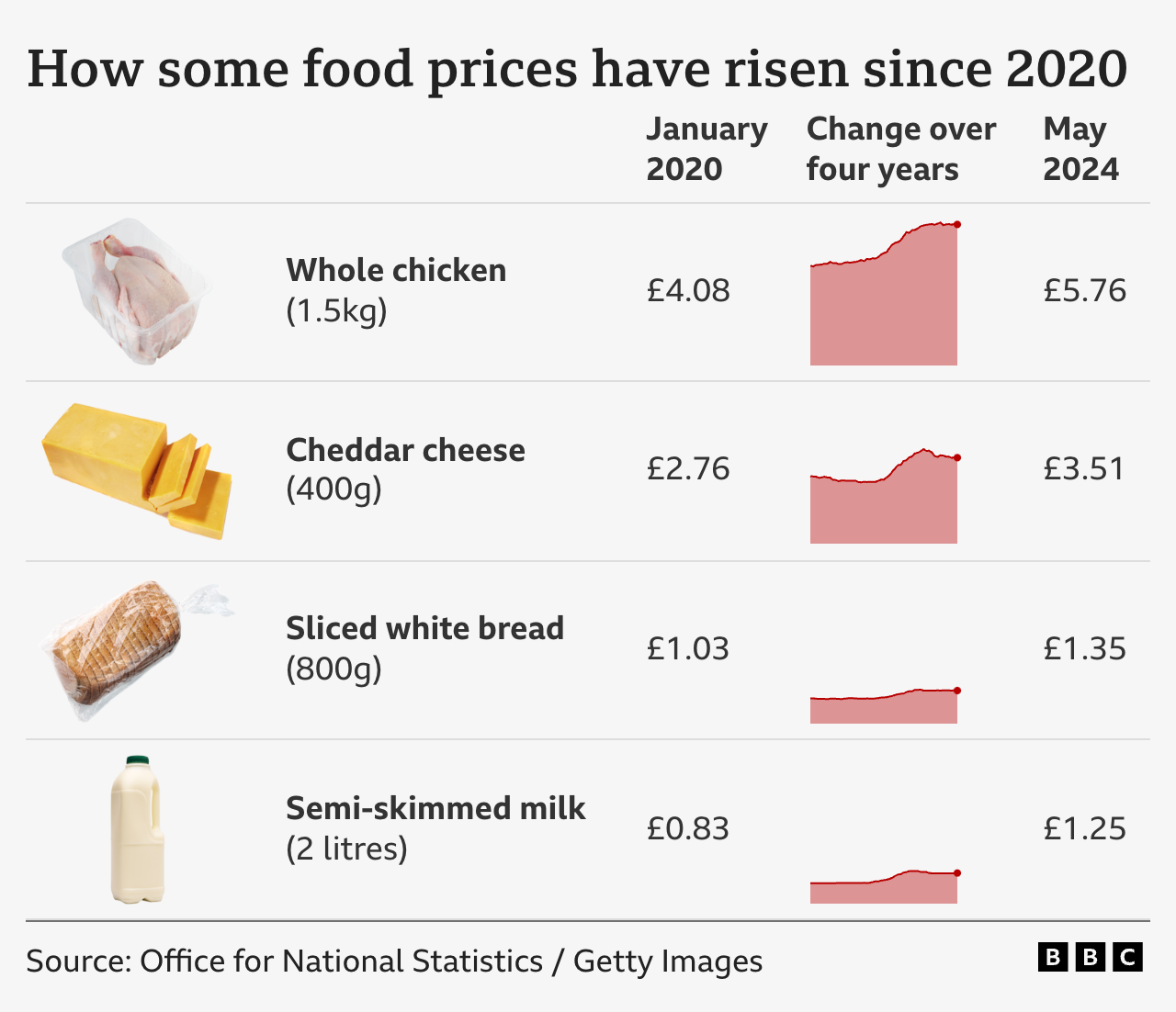
Related topics
- Published17 July 2024
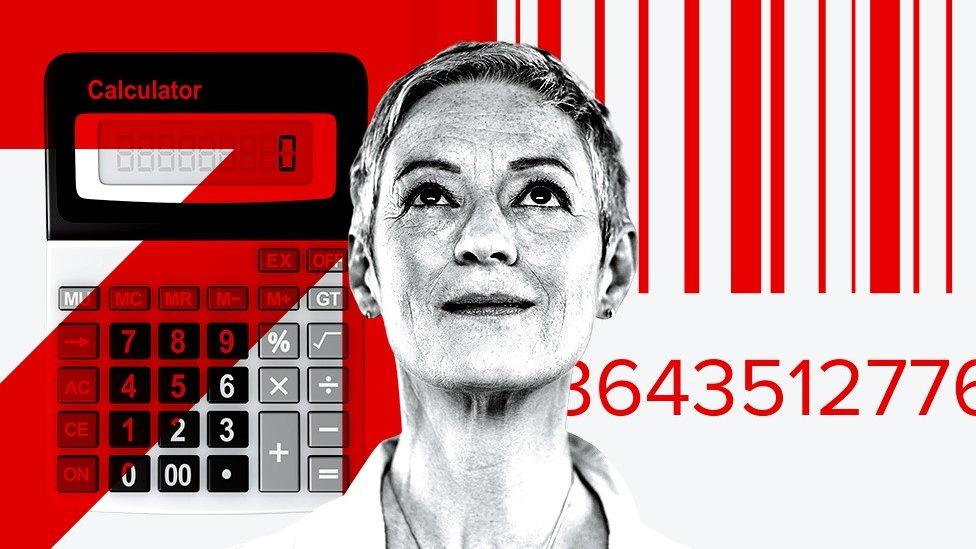
- Published13 June 2024
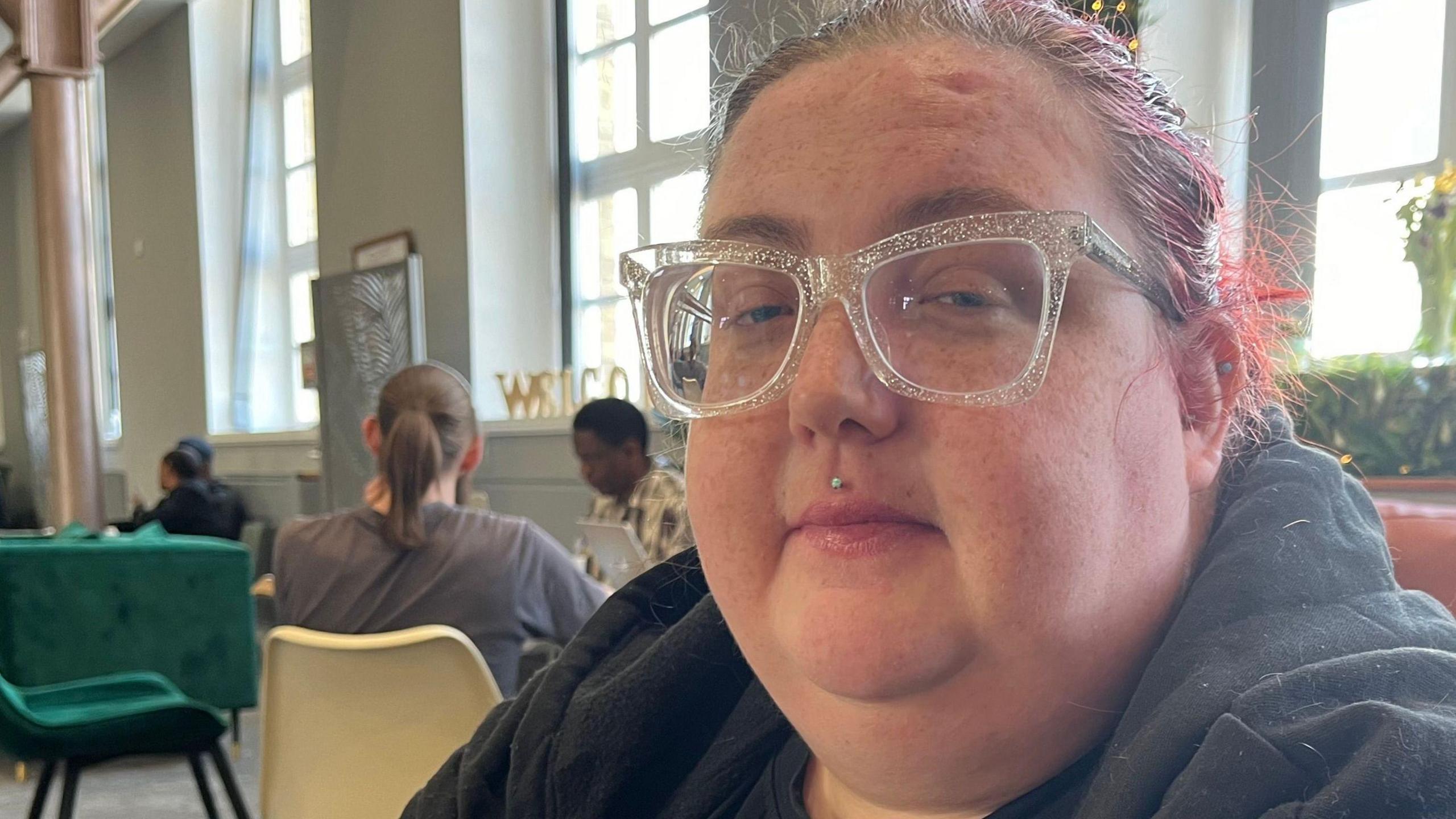
- Published4 June 2024
